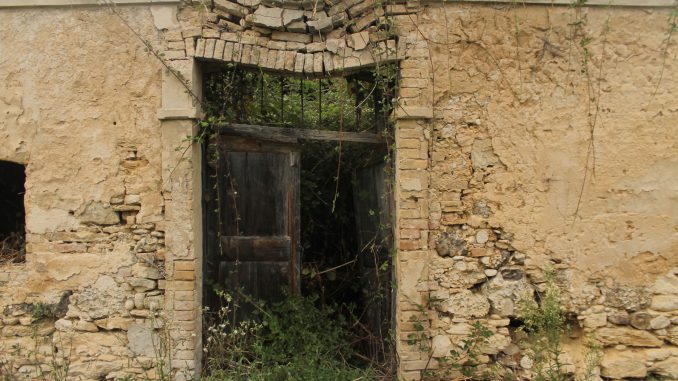
As my friend and I sipped coffee and chatted about school, my great-uncle walked into the cafe.
Out of context, that sounds possible. Maybe even normal. But I knew it couldn’t be true: my uncle had died five years ago from a combination of disease and old age.
Even if he had been alive, he’d lived in a small town in South Jersey. I was almost 4,500 miles away in Palermo, Sicily.
Still, I couldn’t stop staring at the old, weathered man as he approached the bar and ordered. His beaked nose and large ears were the same features that had given my great-uncle his distinctive, friendly face.
This was happening a lot.
I am studying in Rome for the semester, and more and more people have looked like family. A man walking through a busy town square resembled my grandfather. A professor reminded me of my Aunt Marie. I half expected them to turn and speak to me with the crackly accents of South Philadelphia I was so used to hearing.
But of course, these people were not who they resembled. And they spoke Italian — a language I’m still in the early stages of learning.
Growing up, I was always proud to mention I was Italian. It was more interesting than saying I was white. It made me think of lovely, steaming homemade food and bright green hills studded with terracotta-tiled roofs. It was charming. It was romantic.
But over time, I learned to say instead that I was Italian-American, tacking on the undeniable fact that I wasn’t from Italy. My great-grandparents had been the ones to emigrate. They arrived in America through Ellis Island, creating a chasm between themselves and the boot-shaped country they had left. They learned English. They assimilated. Quickly.
Somewhere along the line, we began mispronouncing our last name. I didn’t realize this until visiting Italy for the first time. The “a” in “Gervasi” was, in fact, a long, relaxed exhale. And the “r” was supposed to roll the tiniest bit. It actually sounded musical when pronounced correctly. It sounded like true Italian.
Suddenly, I was annoyed. Why would you mispronounce your own name?
I wished my great-grandparents had passed down the Italian language. I wished, selfishly, that my ancestors hadn’t tried so hard to assimilate, that they’d kept a little more from Italy than pasta and “baccalà” recipes.
I couldn’t be angry. For people like my great-grandparents, immigration wasn’t an effortless transition into a multi-ethnic melting pot. It was difficult and blunderous, filled with discrimination and microaggressions. That was why my great-grandmother’s name gradually morphed from “Anna” to “Annie.” That was why it didn’t matter whether “Gervasi” was pronounced correctly.
I couldn’t be angry. It made more sense to be thankful. By moving from the tiny hill towns of Italy to Philadelphia, my great-grandparents had only been trying to make life better for themselves — and, in the long run, for me as well.
I couldn’t be angry. But luckily enough, I could reconnect.
The same month I visited Sicily, my mother visited Rome. We took a rickety bus to the town of Lanciano, Italy, where our distant cousins lived. For the first time in my life, I met my family in Italy.
Lucio Sideri, a distant cousin, was a smiling, kind-eyed man who seemed to know everyone he encountered in Lanciano. Excited to talk about our family’s story, he led us through the town.
He showed us the centuries-old fountain where Lucia Tatasciore, my great-great grandmother, had washed clothes early in the morning. He showed us the balcony on which Lucia had been standing when she met Florindo Nasuti, a laborer from a nearby village who would later become her husband.
He showed us Florindo’s childhood home, where he had lived in poverty before coming to Philadelphia. The one-story brick building sagged in in the middle, eclipsed by overgrown sheaths of ivy. Inside, dust particles glowed in the dusky sunlight. Abandoned. Empty. Humbling.
I stared at the sorry building. I now knew the story: once Lucia and Florindo had fallen in love, Lucia’s affluent parents disowned her, prompting the couple to begin a new life in America. They were rebellious and determined. And they were part of my family.
And suddenly on that tiny, rocky hill, things clicked, ever so slightly. Italy was now a little bit more than a distant land, a beautiful country, a mispronounced last name.
Angela Gervasi can be reached at angela.gervasi@temple.edu.


Be the first to comment